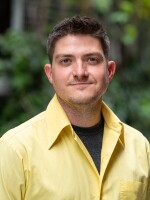Brandon Crum’s radiology clinic is in a former Wal-Mart in Pikeville, Kentucky. Each day, former coal miners come in gasping for air. He ushers them into an X-ray room to take a look.
“That one X-ray that takes maybe three minutes to do, sums up an entire 20 or 30 year history of working in the mines,” Crum said.
Many of Dr. Crum’s patients are diagnosed with coal workers' pneumoconiosis, commonly called “black lung.” It’s an incurable and often fatal disease that’s been directly linked to coal mining. Research has proven there’s a surge of black lung now in Appalachia and federal regulators are trying to tighten workplace standards to prevent it.

Crum’s detailed X-rays and patient histories are frequently used as evidence to access federal benefits for sick miners.
But Crum isn’t the state’s last doctor diagnosing black lung for worker’s comp.
Thanks to a state law, Kentucky won’t refer miners to him.
“I know of nowhere in the United States of America or the world, except Kentucky, where radiologists cannot read chest X-rays to diagnose a disease,” Crum said.
It wasn’t always this way.
Kentucky used to let radiologists like Crum, who specialize in coal dust exposure, interpret X-rays and diagnose black lung on behalf of the state.
But in 2018, Kentucky legislators changed the law to exclude radiologists. Today, only pulmonologists (lung doctors) with the certification to diagnose coal dust exposure can make a black lung confirmation for the state.
Crum and advocates for black lung victims say they believe lawmakers passed the law to cover up a rise in the deadly disease among coal miners.
“Because I found too much black lung, and complicated black lung,” Crum said. “It’s the truth.”
The coal industry testified to lawmakers that the measure would make diagnoses less “subjective.” But the majority of their time was spent discussing rising worker’s compensation insurance premiums.
“These staggering increases deal a significant blow to employers and the overall cost of worker’s compensation in Kentucky,” said Tyler White, then president of the Kentucky Coal Association. “It now places the Kentucky coal industry at a material disadvantage to neighboring states.”
Before the law went into effect, there were 10 doctors allowed to judge Kentucky black lung claims.
Now, six years later, there’s only one doctor who is screening black lung cases for worker’s compensation in the state: Dr. Srinivas Ammisetty. He declined to be interviewed saying he is “just a physician.”

“He’s a very nice person, an honest doctor, a fair doctor, but he's fallible, just like anybody else,” said Doug Holliday, a worker’s compensation attorney in Hazard.
Holliday said, like it or not, Dr. Ammisetty has become the decisive voice for all of these cases. As the only “designated evaluator” for the Kentucky Department of Workers’ Claims, the doctor has something called “presumptive weight” — a fact that is assumed true by the court unless it’s clearly proven false.
“If a miner does not agree with the opinion that he has, he ought to have an opportunity to present evidence on the same footing that Dr. Ammisetty stands on,” Holliday said.
There are efforts to expand this pool of qualified doctors for the state. Democratic State Rep. Ashley Tackett Laferty from Martin is carrying a bill this year that would reverse parts of the 2018 law, allowing radiologists to give their medical opinions to the worker’s compensation board once again.
She said it’s one of the reasons she ran for office.
“There were quite a few bills that were harmful to our coal miners so definitely, it was certainly a big motivation,” Tackett Laferty said.
Despite annual audits of the program, even she wasn’t aware there was only one doctor left.
The law requires state researchers to send the audits to a committee of lawmakers, of which Tackett Laferty is a member. Aides say they send it to the co-chairs, but it’s up to those lawmakers to set agendas for the meetings. Based on meeting minutes, the legislators appear to have never publicly discussed the reports.
“So I am glad to hear that this doctor is located in the vicinity of eastern Kentucky,” she said. “But yes, that concerns me.”
The bill has been proposed before. But just like those other attempts, this year’s version hasn’t moved at all.
“At one time, we had the entire mountain caucus sign on — which is a bipartisan effort to show that we wanted to move these bills in the right direction for the mountains,” Tackett Laferty said. “We've really been working to try to bring it to the forefront, but just... it seems like it's not working.”
Until then, coal miners seeking compensation from the mines they believe filled their lungs with dust will continue to be referred to Dr. Ammisetty.
Ammisetty closed his office in Pikeville at the start of the year.
In a text message, he said he plans to continue diagnosing the state’s black lung claims.
State government and politics reporting is supported in part by the Corporation for Public Broadcasting.





